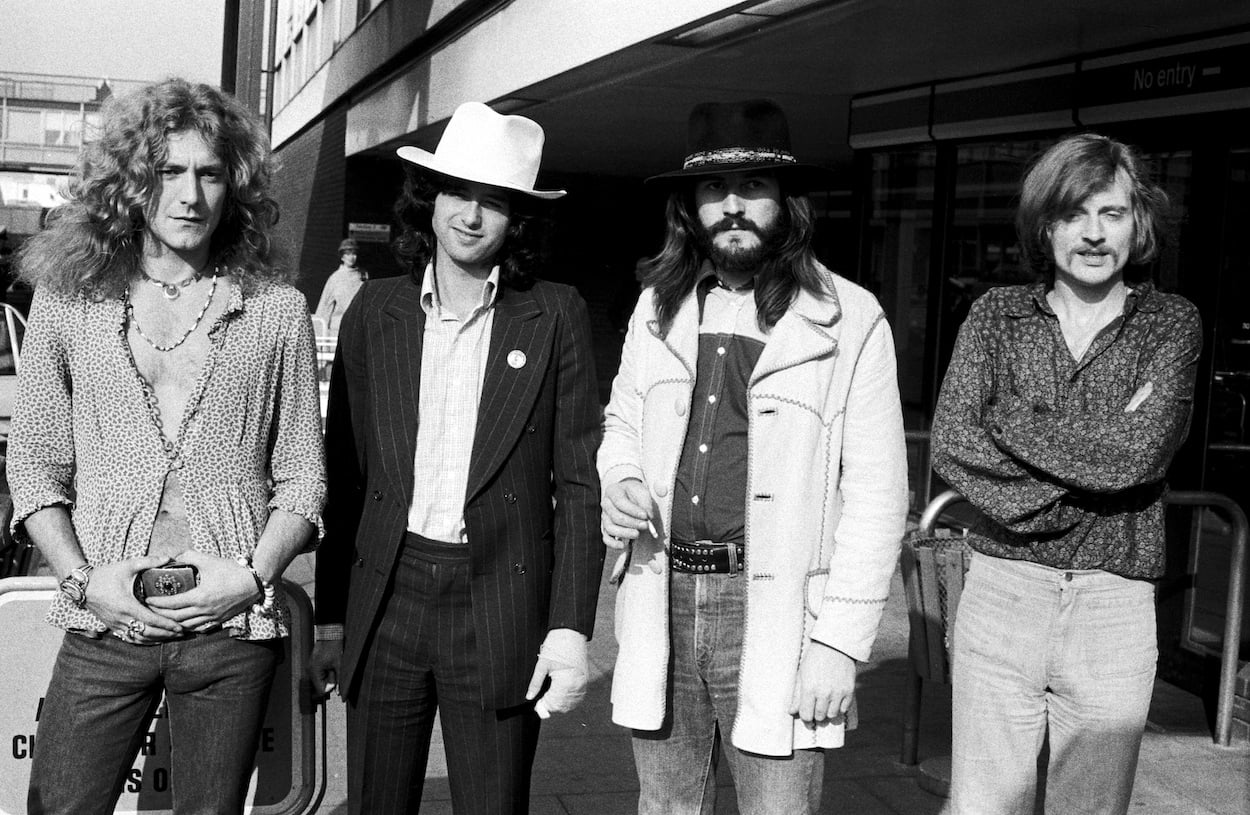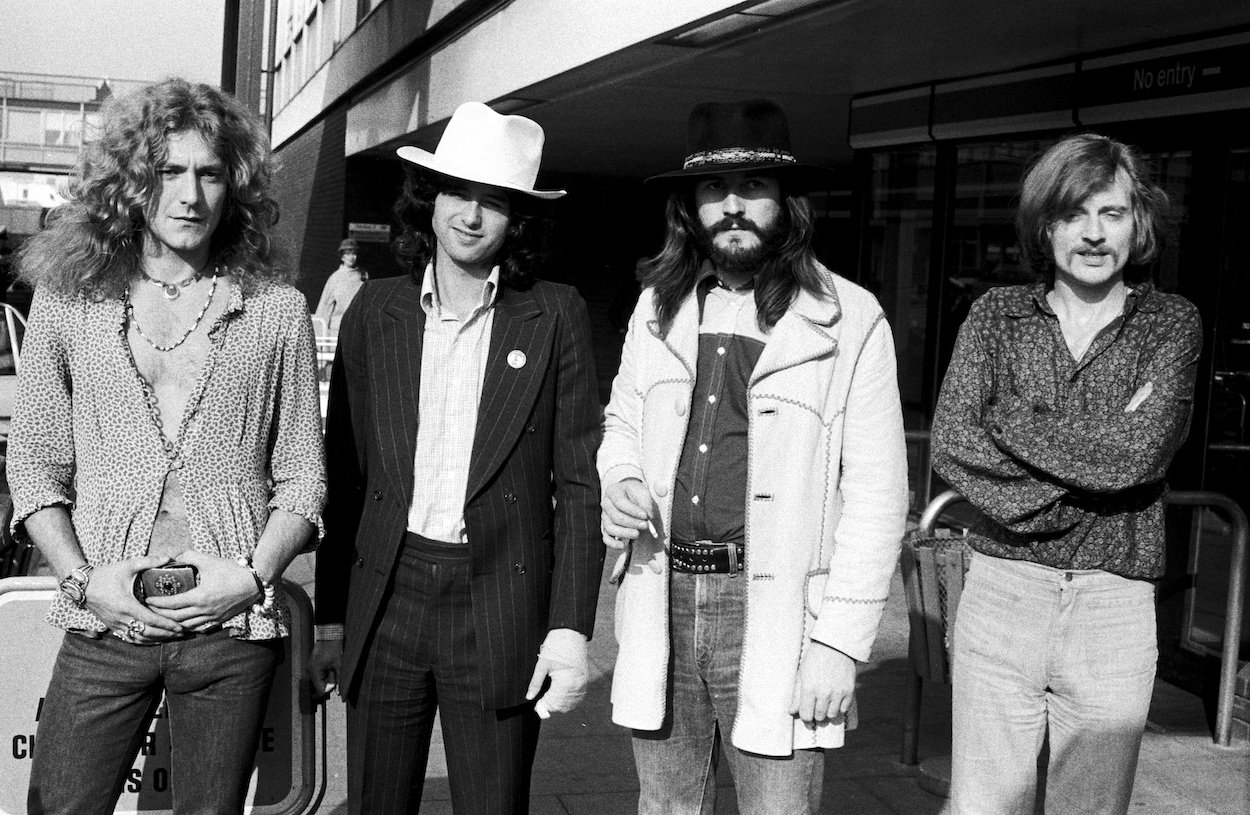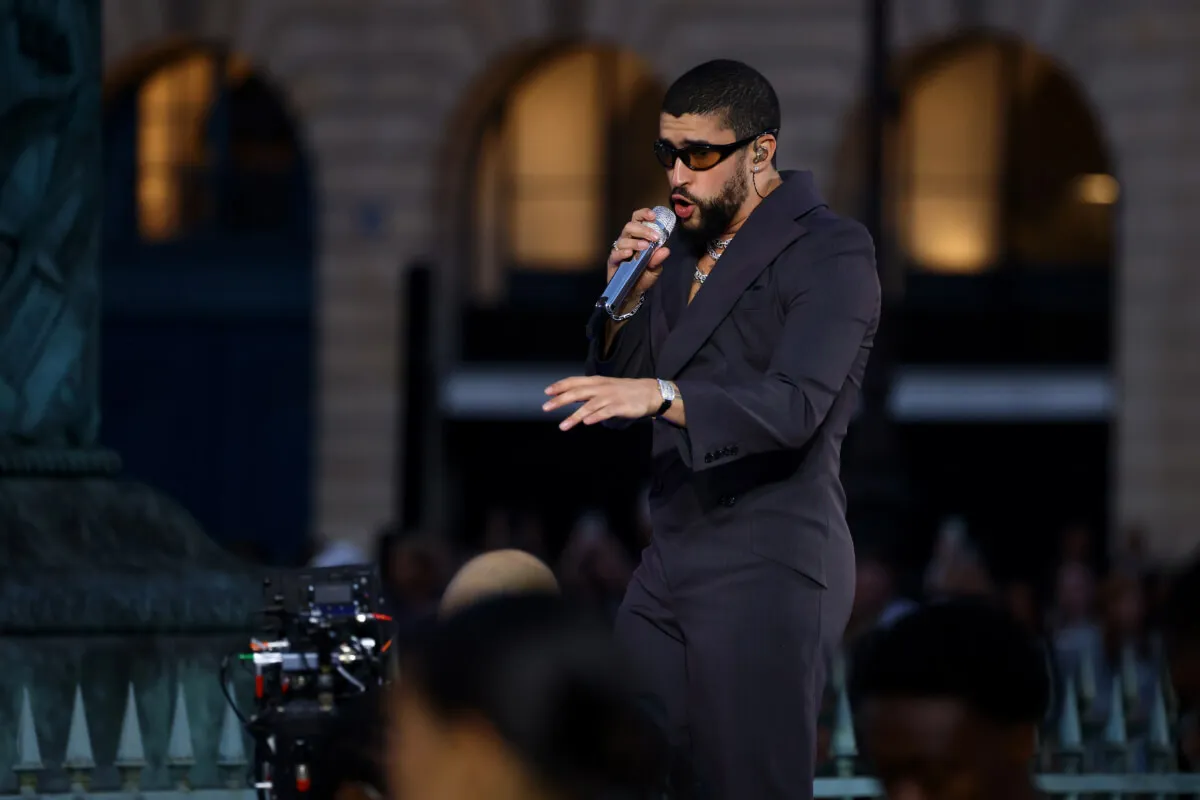
Why Led Zeppelin Never Performed on TV
Led Zeppelin helped usher in a change in the music scene, and not just for the way they played. Founding guitarist Jimmy Page insisted the band sign with Atlantic Records so they wouldn’t share a label with Eric Clapton’s band, and from there, the group operated on their terms until they broke up. Led Zeppelin almost never performed on TV, an approach few major bands of the era shared.

Led Zeppelin operated differently from other bands of the era
Zeppelin took a stand when they signed their record deal, and that was the first of several times they forged their own path in the music business.
They released only a handful of singles in the United States, shutting off an income source that was lucrative for other artists. Page hated the butchered version of one Led Zeppelin single, and the band didn’t release their first single in the United Kingdom until 1997.
Unlike the late-era Beatles, who used the studio as a canvas, Zep didn’t tinker when it came time to record. Page said their debut came together in 30 hours, and Zeppelin recorded Presence in less than three weeks.
Where contemporaries such as David Bowie or The Rolling Stones never shied away from playing on the tube, Led Zeppelin had a reason for almost never performing on TV.
Led Zeppelin never appeared on TV because they didn’t want to give anything away
Led Zeppelin TV performances were so rare that it’s not much of a stretch to say they never happened.
Danish TV broadcast a March 1969 performance, and the band performed on Japanese TV that year (via YouTube). Where artists routinely played for Ed Sullivan or on The Tonight Show, Led Zeppelin basically never performed on TV.
But they had a reason for taking that approach. Not playing on live TV added to the band’s mystique. Led Zeppelin was an English band that broke through in the U.S. first. Since they didn’t release singles, the only way to hear the music as soon as it was released was to buy albums or concert tickets (or both).
“They didn’t release singles, and they did not appear on TV, and that was such a revolutionary move at the time,” Mark Blake, author of Bring It On Home: Peter Grant, Led Zeppelin, and Beyond —The Story of Rock’s Greatest Manager, told WBUR radio. “People thought it was career suicide, but again, this added to the mystique. [If] you wanted to listen to the music, you had to buy a long-playing record. If you wanted to see them, you had to buy a concert ticket. You wouldn’t see them on TV. And that was unheard of at the time.”
Blake told WBUR that Led Zeppelin not performing on TV also helped the bottom line. Manager Grant strong-armed concert venues into giving the band 90% of the gate (30% more than most acts of the time). So when Led Zeppelin broke The Beatles’ record for concert attendance, it’s likely they earned a hefty payday at the same time.
The band achieved massive success despite saying no to TV performances
Led Zeppelin almost never performed on TV, but it didn’t matter in the end. They became one of the most popular bands of all time solely because of their music:
- They sold millions of records. All of their albums, including post-break-up collection Coda and The Song Remains the Same live album, went platinum.
- Six of their eight studio albums reached No. 1 on the Billboard charts (only Led Zeppelin I and IV didn’t).
- They earned a $2 million paycheck for one song nearly 50 years after it came out.
- Led Zeppelin inspired Black Sabbath to overhaul its sound, according to Sabbath singer Ozzy Osbourne.
Led Zeppelin not performing on TV might have seemed like a mistake initially, but the band reaped the rewards for forging their own path.
For more on the entertainment world and exclusive interviews, subscribe to Showbiz Cheat Sheet’s YouTube channel.


